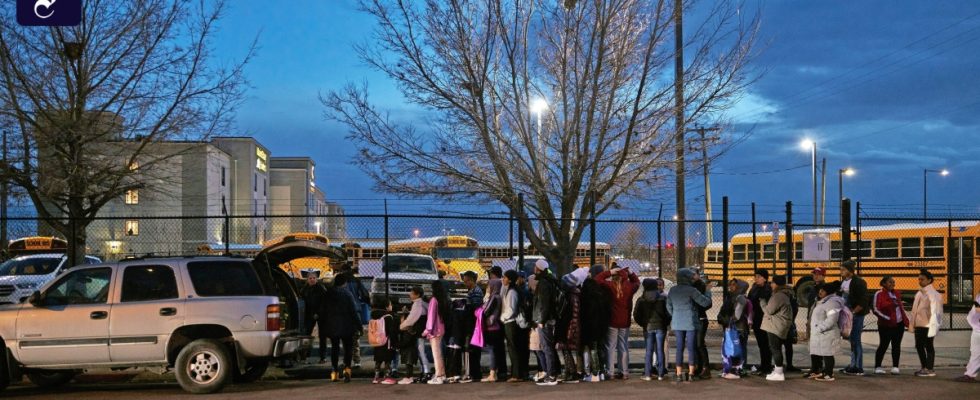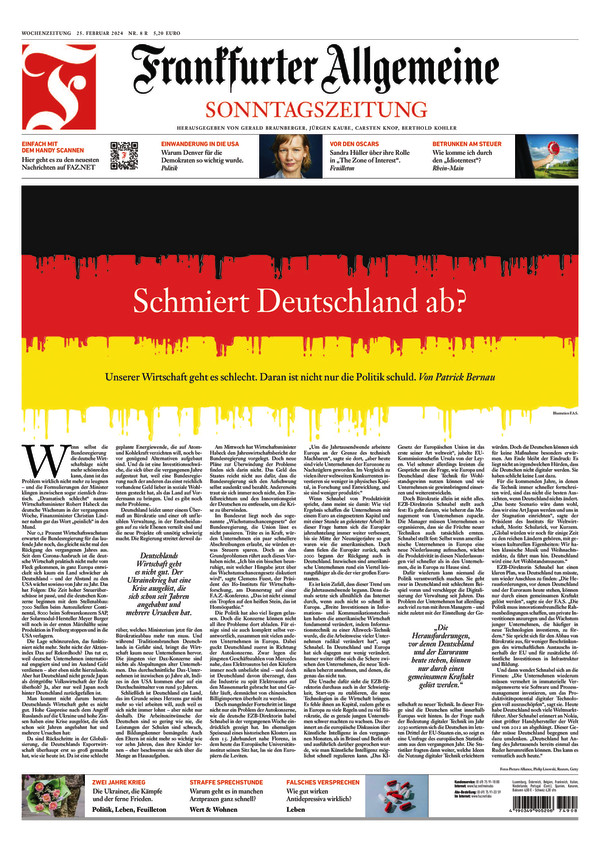GLost in thought, Luiz arranges his modest hairdressing equipment on the small plastic folding table behind which he has sat: an outdated clipper, a few attachments, scissors, a comb and a brush. The young man wipes the dust from the table with his hand. Then he puts his head in his hands and supports his elbows. It doesn’t look like business is going well right now.
Luiz has set up his workplace in the parking lot of the Quality Inn on the edge of downtown Denver. In the capital of the state of Colorado, the sun shines brightly on the snow-covered ground on this February day. The “Quality Inn” is a rather run-down two-star hotel that the city administration rented at the end of last year because it urgently needed additional refugee accommodation.
The parking lot is the most important gathering place for the migrants. Most of them come from Venezuela, where Luiz also comes from. They wanted to leave poverty, crime and political persecution behind them. A few women offer sodas and snacks from coolers. A few meters away, young men are smoking hand-rolled cigarettes and inspecting a crappy Toyota with a dented fender that one of the boys has just purchased. Every now and then someone comes by with donations of clothing. Then people pounce on the goods and rummage through the bags.
When Luiz sees the stranger, he puts on a smile and says: “Come on, I’ll cut your hair.” Luiz reacts to the visitor’s skeptical look by pointing out that he trained as a hairdresser in Venezuela. Now he wants to try his luck in America. “Give me a chance.”
His boss back home closed his business a long time ago and left the country. There is chaos in Venezuela. Last fall he and his brother decided to go to America. So they set off on their journey. He is 29, Carlos, his brother, is 31. He does not want to give his last name. The mother is no longer alive. The father had already left for Colombia. Luiz and Carlos had saved a little money. They packed a few clothes in two bags and set off: hitchhiking, by bus and on foot. Over endless roads, through the jungle and the desert.
Buses sent to democratically governed cities
They arrived in Juárez, Mexico, in December. With dozens of other migrants, they finally stood in front of the Rio Grande and looked across the bank to Texas. They took a few steps through the shallow water and were taken to the registration point in El Paso by border officials. After that, only a few days passed before Luiz and Carlos were taken to a bus station in the city. Greg Abbott, the Republican governor of Texas, faced with the migration crisis for which he blames President Joe Biden, has resorted to simply putting migrants on buses and taking them to New York and Chicago – cities governed by Democrats and the See themselves as “sanctuary cities”, as places of refuge for migrants, including those who entered the country illegally. At the end of November, Abbott specified a new bus route: Denver, also a Democratic stronghold, also a “sanctuary city.”


